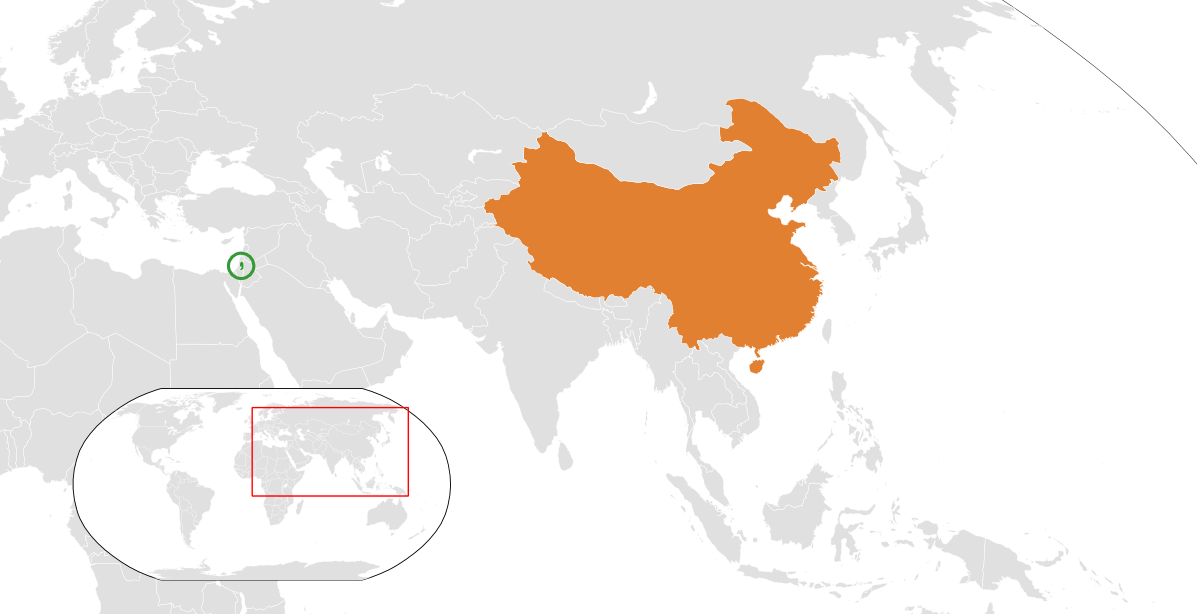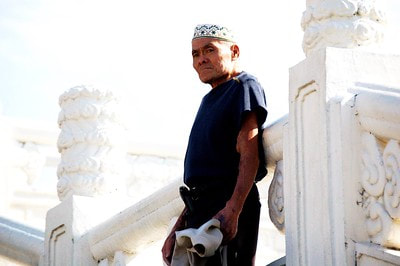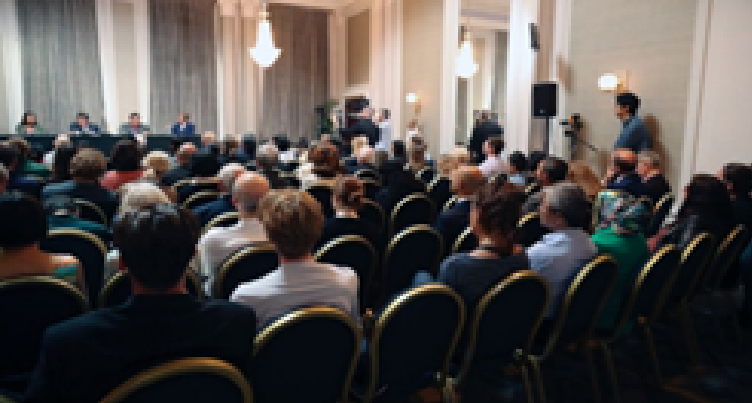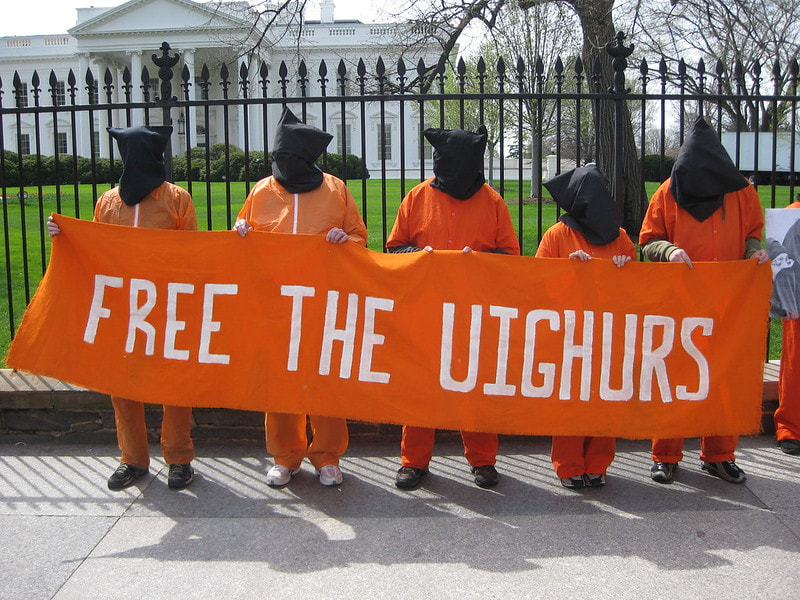|
Written Format of Justice For All Canada’s address at the UN Human Rights Council.
By: Tazeen Hassan, Justice For All Canada, Campaign Manager My name is Tazeen Hasan, and I am honored to represent Justice For All, an organization dedicated to combating global Islamophobia particularly the one which leads to genocide. It is a privilege to address the 56th session of the Human Rights Council in Geneva. I extend my gratitude to all the organizers of this event for addressing such a timely and relevant issue that impacts 2 billion Muslims worldwide, constituting nearly one-fourth of the world's population. We live in a world where Islamophobia intersects not only with settler colonialism, apartheid, and ethnic cleansing but also culminates in genocide, as witnessed in India, Kashmir, China, Myanmar and now in Gaza. Unfortunately, we are gathering at a time when the Israeli bombardment of Gaza has entered its ninth month, a situation deemed a plausible case of genocide by the ICJ. While it is evident that 75-years long Israeli aggression towards Palestinains is driven by settler colonization, the silence of Western powers appears rooted in Islamophobia. During the recent G7 summit in Italy, a special event was organized for Ukraine, yet Gaza received no comparable consideration, despite widespread acknowledgment that Israeli actions against Palestinians are far more brutal than Russian actions in Ukraine. Prompt arrest warrants were issued against Putin, whereas warrants against Netanyahu still remain pending. These double standards are clearly indicative of Islamophobia. Islamophobia has existed as long as Islam itself. The persecution of Muslims by the Quraysh was an early manifestation of this prejudice. Islamophobia fueled the Crusades, the Spanish Inquisition, the anti-Muslim rhetoric of Eurocentric orientalists, and the vilification of the Prophet by Voltaire in 17th century France. Islamophobia manifests in various forms: the Naqab and Burkini bans in France, discriminatory immigration policies and the anti-immigrant shift in Western politics, the rise of far-right power in recent EU election results, predominantly Muslim no-fly lists in Canada and the US, and the suspension of anti-war peaceful student protesters at Harvard and Columbia, where their constitutional rights of freedom of expression and peaceful assembly were denied. This pattern is also evident in media and narrative framing, with any criticism of India and Hindutva being labeled as Hinduphobia, and criticism of Israel being labeled as Anti-Semitism. Neither Islamophobia nor the use of arts to express it is novelty. Islamophobia still persists in various forms of art. For example, the 2015 film 'American Sniper' which vilified Iraqis who suffered from a war waged on the fabricated pretext of weapons of mass destruction. Similarly, Bollywood movies like 'Kerala Story' and 'Kashmir Files' depict Muslims as villains and aggressors, perpetuating negative stereotypes. Films like 'Article 370' also whitewashed the Indian genocide in Kashmir. When Islamophobia is combined with majoratarianism, occupation, settler colonization, apartheid, and ethnic cleansing, it often results in genocide. In India, this manifests through majoritarianism and legislations like the CAA, which strips citizenship rights from Muslims. The Chief Minister of the biggest Indian state of Uttara Paradesh, is known as 'Bulldozer Baba,' because he gained notoriety for demolishing Muslim homes with bulldozers. His influence extends beyond India; in 2022, an Indian independence rally in New Jersey prominently featured a bulldozer adorned with images of Yogi Adityanath, celebrating his anti-Muslim policies. This blatant display abroad begs the question: what else but Islamophobia could drive such actions in the world's largest democracy? Islamophobia is fueling yet another genocide. Millions of Uyghurs in north west of China have been detained for signs of extremism. Simply having a beard, naming children Muhammad or Omar, fasting during Ramadan, or having more than three children results in sentences of 10 to 20 years in prison. Even those not guilty of practicing their faith were sent to reeducation camps, where they were coerced into abandoning their Islamic and Uyghur identities. Upon release, they are sent to forced labor camps to become part of China's export industry. Families have been torn apart, with children sent to state-run orphanages. Uyghur women face forced sterilizations to curb Uyghur births. According to genocide convention, preventions of births in a community and transferring its children to another community is considered genocide. This genocidal project under the pretext of combating islamic extremism is almost at its completion. The stateless Rohingya of Myanmar are enduring a slow genocide for decades, which escalated into a full-scale genocide in 2017 when they suffered brutal killings, rapes, and the burning of their homes and villages by the Burmese army. Around one million Rohingya fled to Bangladesh, where they now face a miserable humanitarian crisis. Canada was the first Western country to recognize the Rohingya genocide in 2018. Six years later, we are still in the initial stages of discussing whether we should offer them immigration. The same holds true for Palestinian children in Gaza, who endure genocide while the world watches, leaving them nowhere to seek refuge. In stark contrast, the Western world immediately and unconditionally opened its doors to Ukrainians as soon as conflict broke out there. These double standards glaringly highlight Islamophobia in geopolitics. Islamophobia is also manifesting itself in the environmental genocide of Kashmir under the BJP government. Time doesn't allow me to explain the genocidal policies of the Indian government which are fatal for the population of Kashmir. We inhabit a world that upholds international law, and we all share international obligations under genocide convention, Un charter of human rights, and International covenent of civil and political rights. In the end I will appreciate The UN general assembly’s resolution in March as a significant milestone in combating Islamophobia. However, I on behalf of Justice For All Canada recommend that UN the develops the mechanisms to combat geopolitical Islamophobia which is intersecting with occupation, settler colonization, apartheid and leading to genocide. In an eye-opening analysis, Tazeen Hasan delves into the motivations behind the warm welcome of Palestinian President Mahmoud Abbas in China and highlights the urgent need for global scrutiny and accountability regarding China's treatment of Uyghurs in Xinjiang.
Mahmoud Abbas, the President of the Palestinian Authority, recently concluded a successful four-day state visit to China in mid-June. The visit was marked by a warm reception from Chinese President Xi Jinping, who emphasized the strong friendship and partnership between China and Palestine. In a significant development, both nations issued a joint statement officially declaring the establishment of a "strategic partnership" between them. This move highlights the growing ties and cooperation between China and Palestine. However, China's recent efforts to establish a "strategic partnership" with Palestine and other Muslim countries in the region must not distract the world from the egregious crimes against humanity being committed by the Chinese government. By courting Palestine and Muslim-majority nations, China aims to whitewash its own record of religious persecution and genocide against Uyghur and other Turkic-speaking minorities in Xinjiang. While it may seem odd for China, a major global power, to seek such a partnership with a small and impoverished state like Palestine, it is essential to understand China's broader geopolitical strategy. China has been actively cultivating relationships with the Global South, particularly Arab and Muslim countries, in an attempt to gain support and influence in international affairs. By championing Palestinian rights, China seeks to portray itself as an anti-colonial voice and a friend of the Arab/Muslim world. China's rhetoric in support of Palestine is seemingly commendable, but the stark reality is that its actions tell a different story. China has strong political and economic ties with Israel and will not risk endangering those relationships by genuinely supporting the Palestinian cause. In fact, China's trade with Israel is nearly 100 times greater than its trade with Palestine. It is clear that China's support for Palestine is more about optics and self-interest rather than genuine concern for the Palestinian people. The "strategic partnership" agreement between China and Palestine includes commitments to support the establishment of an independent Palestinian state based on the 1967 borders and to maintain the historical status quo of religious sites in Jerusalem. However, these commitments are not conditional on Israeli agreement or adherence to international law. This implies that China will not stand against Israeli actions that violate Palestinian rights, such as annexation of the West Bank or the expulsion of Palestinians from their homes. China's silence on potential Israeli violations reveals its true intentions. It is willing to turn a blind eye to Israeli aggression to maintain its economic and political interests. If China genuinely cared about the plight of the Palestinian people, it would take a firm stance against Israeli injustices. Instead, China's support for Palestine serves as a convenient cover to divert attention from its own horrific human rights abuses in Xinjiang. In Xinjiang, over a million Muslims, primarily Uyghurs, have been detained in internment camps. Reports of forced labor, cultural assimilation, and religious persecution paint a bleak picture of the atrocities being committed by the Chinese government. Those who have been released from the camps are often forced into labor camps, further perpetuating their exploitation. China fears that Muslim-majority countries will rally in support of Uyghurs and Turkic-speaking Muslims, exposing its crimes to the world. By cultivating alliances with Muslim nations, China hopes to isolate the Uyghur cause and prevent international support for their struggle. China's strategic partnership with Palestine is not based on genuine solidarity but on self-interest and geopolitical maneuvering. It seeks to bolster its image as a global power and secure support for its controversial policies, such as the "one China" policy and its opposition to foreign interference in its internal affairs. Moreover, it allows China to undermine the influence of Western countries, particularly the United States. While China's partnership with Palestine may shift the dynamics in the Israeli-Palestinian conflict, it is imperative not to lose sight of the larger picture. China's actions in Xinjiang cannot be overshadowed or excused by its support for Palestine. The international community must remain vigilant and hold China accountable for its crimes against humanity. Genuine support for Palestine should be based on principles of justice, human rights, and respect for international law, not on geopolitical calculations or attempts to divert attention from one's own misdeeds. #Uyghurs #SaveUyghur #Palestine #Israel In July and August 2022, Justice For All Canada co-organized back-to-back demonstrations protesting the inhumane persecution of Uighurs and Kashmiris. Although these groups represent different struggles and lived experiences, both minorities share in common grievances related to their security, equality, livelihood and wellbeing. August 31st, 2022 By Saleha Faruque Uighurs and Kashmiris represent Indigenous peoples belonging to native lands in Asia; East Turkestan is home to 12 million Uighurs, whereas 12.5 million Kashmiris live in Jammu and Kashmir. Both regions exist under intense occupation and administration by majoritarian governments. Kashmiris live in Jammu and Kashmir, located in the extreme northwest of India. The Indian state currently occupies two-thirds of this territory. According to Human Rights Watch, India’s ruling nationalist government is responsible for revoking constitutional autonomy granted to Kashmir. East Turkestan has also been colonized, controlled and occupied by China’s government since 1949. Occupying powers in East Turkestan and Kashmir have contributed to severe human rights violations against their minority populations. This includes arbitrary mass arrest, suppression of thought and censorship, illegal settler activities, sexual and gender-based violence, including other crimes punishable under international human rights laws. Kashmir Protest in Mississauga, Ontario Celebration Square is a public space located in the heart of Ontario’s Mississauga city. The venue holds years’ worth of concerts, festivals and community events—an ideal location to amplify voices for Kashmiri rights. The Kashmiri protest was co-organized between Justice For All Canada and Friends of Kashmir Canada. Our respective groups invited students, community leaders, professionals and Kashmiris to gather, share thoughts, and broadcast a strong message in support of the Kashmiri people. The event also drew Kashmiri Canadians from all backgrounds and ages. Because of the successful rally. some of them could finally witness people coming together for the sake of this neglected cause. When it comes to the issue of Kashmiri rights, support is hard to come by. Unfortunately, the pervasive nature of India’s right-wing BJP government makes it difficult for impacted Kashmiris to voice their opinions. Luckily, non-profit organizations like Just Peace Advocates frequently use their platform and expertise to conduct strong advocacy demanding an end to the hidden government-imposed oppression plaguing Kashmir’s population. Uighur Protest in Toronto
It was a warm Sunday afternoon when hundreds of activists, student groups, volunteers, families and Uighur people gathered outside the Chinese consulate in Toronto. Heartfelt testimonies, statements and peaceful chants were delivered by a crowd unified against the ongoing genocide of Uighurs. Anti-genocide signs were held high, and by the day’s end, activists formed emotional connections with one another. Consulate workers entered and exited the building, avoiding eye contact and maintaining stoic expressions throughout. The successful protest was part of a global solidarity movement launched by Stand 4 Uyghurs, an advocacy project of UK-based website Islam21C. In addition to the protest, the #Stand4Uyghurs initiative also included a global khutba campaign in major cities across the UK, Australia, the US and Canada. Justice For All Canada participated by urging hundreds of nationwide Imams and Mosques to dedicate their Friday khutba (lecture) to discussing crimes against humanity inflicting Uighur Muslims under China’s communist government. Canada’s Government is Responsible Justice For All Canada is a human rights and advocacy organization committed to preventing and halting anti-minority Islamophobia, hate crimes, ongoing genocide or genocide incitement in regions like Kashmir, East Turkestan, Palestine, Sri Lanka, Burma and India. As 2022 presents the first non-pandemic summer, activists look forward to continue assembling under shared goals of peace and equality for the world’s most persecuted minorities. Reposted with permission from The Platform Project. Access the original article here.
Imagine that you are being separated from your family, loved ones who you will probably never see again. That your house is on lock down and you are being beaten and forced into prisons. Assume that you are being deprived of your organs unwillingly. Your identity and culture are being erased; you are being erased. This scenario feels barbaric to most of us, but this is the reality for most Muslims living in China. The Uyghurs are a minority Turkic ethnic group native to the Xinjiang Uyghur Autonomous Region in China. Historically, Xinjiang has been under the control of various dynasties including the Mongol Empire. It came under Chinese rule as a result of the expansion of the Qing Dynasty. In 1912, the Qing dynasty was replaced by the Republic of China. From the 1950s to the 1970s, the Chinese government funded a mass migration of Han Chinese people into the region, with goal of eradicating the Uyghur identity and culture. Infuriated Uyghurs saw this as a threat to their culture and identity which resulted in riots in Xinjiang. From then on, the situation has been deteriorated for Uyghurs and Xinjiang has become one of the most heavily policed regions of the world. On 13 August 2018, at a UN meeting in Geneva, the delegation from China informed the United Nations Human Rights Committee that “There is no such thing as re-education centers in Xinjiang and it is completely untrue that China put 1 million Uyghurs into re-education camps“. The Chinese government has always denied the existence of these camps, until October 2018, when it officially legalized them. This is just a glimpse into the deceptiveness of the Chinese government, through the use of state sponsored propaganda the Chinese government has labelled these camps as “Re-education camps”, but the reality is far from it. These camps are in fact prisons. In December 2018, the magazine Bitter Winter released three videos it claimed had been shot inside camps in the Yining area. The videos show jail-like features which the magazine claimed proved that the camps are detention facilities rather than ‘Schools’. Since 2016, it is estimated that over a million Uyghurs have been detained in the Xinjiang detention camps. The camps operate outside the legal system with many Uyghurs being imprisoned, without a trial and without any charges laid against them. According to a Report by Adrian Zenz a German scholar, China is forcing sterilization and contraceptive devices on women in Xinjiang in an apparent attempt to limit the Muslim population of the Uyghurs. Mr. Zenz’s report states that women who had fewer than the two legally permitted children were involuntarily fitted with intra-uterine devices (IUDs), while others were coerced into receiving sterilization surgeries. Natural population growth in Xinjiang has declined dramatically in recent years, with growth rates falling by 84% in the two largest Uighur prefectures between 2015 and 2018 and declining further in 2019. The Chinese government is also accused of murdering Uyghurs and members of Falun Gong religious group in order to forcefully harvest their organs. Hamid Sabi, Counsel to the China Tribunal, presented evidence from the tribunal’s final report, which was published in June 2019. The people were “cut open while still alive for their kidneys, livers, hearts, lungs, cornea, and skin to be removed and turned into commodities for sale,” the report said. Sabi concluded by saying that it is the duty of international bodies like the UN to investigate the tribunal’s findings “not only regarding the possible charge of genocide but also in regard to crimes against humanity.” Muslim women whose husbands have been detained in Chinese internment camps are reportedly being forced to share beds with male government officials assigned to monitor them in their homes. Human Rights Watch previously stated that Uyghur families are given no option to refuse these visits, which it said were an example of “deeply invasive forced assimilation practices” that “not only violate basic rights but are also likely to foster and deepen resentment in the region”. This detention of adult Uyghurs has allegedly left many children without their parents. These children are sent to ‘boarding schools’ where they are forced to learn Mandarin Chinese and prohibited from exercising their religion. These trauma inflicted children are taken without parental consent and allegedly brainwashed to loathe and detest their parents and their culture. Mihrigul Tursun, a Uyghur woman detained in China, was separated from her infant triplets. She later came to know the heartbreaking news that one of her triplets had died and the other two had developed health problems. There are no limits to China’s oppression of its Muslim population. China’s list of atrocities against the Uyghurs includes forced consumption of alcohol and pork, destruction of more than 100 Muslim cemeteries, demolishment of mosques across China, forced movement of Uyghur Muslims into labor factories. In order to answer the plight of the Uyghurs, we need to take a few concrete steps. The first step is to impose sanctions against those personally responsible for the repression of Uyghur Muslims. U.S President Donald Trump signed an executive order on June 17th, 2020, that condemns the Chinese Communist Party for the detention centers and, recommends a tougher response to the human rights abuses suffered by Uyghurs Muslims. Under this policy, Chinese officials who are responsible for the governance of these camps would be subject to sanctions which include asset blocking and visa revocation. We, as citizens of Canada, should request Canadian Prime Minister Justin Trudeau to impose similar sanctions. Secondly, boycott Beijing’s Winter Olympics 2020 and its sponsors. No one today would openly endorse holding the Games in a state holding millions in concentration camps, but this is precisely what is happening at the moment. A coordinated international boycott would make the 2022 Olympics an embarrassing flop for Beijing. Concerned members of the public should apply pressure on their national Olympic committees, politicians, and corporate Olympics sponsors. These intermediaries should, in turn, remind the International Olympic Committee that the PRC state’s policies in Xinjiang are a violation of multiple clauses of the Olympic Charter. Canada should not be part of the Belt and Road Initiative (BRI), which aims to link Beijing with some 70 other countries around the world. This is one of the main reasons behind the crackdown in Xinjiang as the province of Xinjiang is home to numerous projects along the Silk Road portion of the BRI. Monetary donations will help in alleviating some of the hardships so many Uyghur families are going through. Islamic Circle of North America (ICNA) situated in Canada is doing an amazing job of serving the Uyghur community in Turkey through sponsoring orphans, widow support, student scholarships, and trying to bring Uyghur families to Canada. You can donate at the link below and help us fight the good fight. Thank you! My name is Turnisa Matsedik-qira. I am a resident of Vancouver, British Columbia.
I belong to the Uighur nation from East Turkestan, occupied by China. The Chinese government is perpetrating a genocide against Uighurs and other Turkic minorities. I and my two Canadian friends have been protesting outside Vancouver’s Chinese Consulate every week for four months. While I was standing with a banner, two Chinese men spat on my face and one of them shouted, "I wish you, people, all die (meaning all Uighurs). I hate your maozi (Chinese word for Hijab). He cursed me with the ugliest words, one after another. These incidents happened in the past too. We were harassed at least five times. My kids were also scared a few times. Nonetheless, it was the first time, that I took out my camera to take a picture or video. Watching my phone, the man who harassed me hid his face and drove away in his car. Yet, I was able to take a picture of his van as the traffic light was red. I immediately called the police. I had witnesses and a picture of his van. Police traced the aggressor. Yet, they just warned him and did not take any action. It is scary because China's official's dehumanization, insults, and criminalization of Uighurs have now reached Canada. They are perpetrating a genocide of my people in East Turkestan and now they are harassing us here in Canada. The consequences can be worse in the coming days and months as we will not stop protesting. I request Prime Minister Justin Trudeau, Members of Parliaments, and all political parties to take notice of this harassment, hate speech, and attack on peaceful Uighur protesters. Based on an interview with Turnisa, this personal narrative is penned by Tazeen Hasan Nov 23 et seq. 2021 The following remarks were prepared by Hon. David Kilgour, J.D. for an Uyghur human rights event taking place on Parliament Hill on November 23rd, 2021. For a full biography of Mr. Kilgour, please visit David-kilgour.com. Friends of the 56 recognized cultural communities across China, There are many important topics for our conference on China this week to consider, including what has happened to tennis star Peng Shuai. Most important perhaps are the range of proposals made by the all-party House subcommittee on human rights last year. Permit me to provide some context to realities there by addressing organ pillaging. China appears to be unique among almost 200 independent countries today in that its organ transplantations are government-managed. In mid-2006, David Matas and I did an independent investigation into persistent claims of forced organ harvesting from Falun Gong practitioners. We released two reports and a 2009 book titled Bloody Harvest. We concluded that since 2001 Beijing directed a network of forced vital organ-harvesting from prisoners of conscience--primarily Falun Gong. The organs were then sold to wealthy recipients in China and foreign ‘organ tourists’. Specifically, we found beyond any doubt from 18 kinds of evidence that between the years 2001 and 2005, at least 41,500 organs were sourced from Falun Gong prisoners of conscience across China, who were killed during the removals. Ethan Gutmann, author of The Slaughter (2014), later placed the persecution of the Falun Gong, Uyghur, Tibetan, and house Christian communities in context. He explains how he arrived at his “best estimate” that organs of 65,000 Falun Gong and “two to four thousand” Uyghurs, Tibetans and house Christians were pillaged in the 2000- 2008 period. Matas, Gutmann and I released an Update in 2016 in Washington, Ottawa and Brussels (accessible from www.endorganpillaging.org. ). It provided a careful examination of the transplant programs of hundreds of hospitals across China. We concluded that over two decades, the party-state directed a network of organ harvesting from prisoners of conscience. Our findings helped the US Congress and the European Parliament to pass nearly identical resolutions condemning the Chinese regime for harvesting prisoners of conscience. Based on the 2019 China Tribunal findings in the U.K., we learn that the Chinese authorities are still at it. At least ninety thousand transplants a year and the assurance of a back-up organ should the original organ fail is an inhuman commerce that has no equal anywhere. This reality in China can only be explained as resulting from the murders of readily available ‘prisoners’ – Falun Gong, Tibetans, Uyghur Muslims and Christians. It should be no surprise to nationals of countries with independent media that during about 40 days in late 2019 and early 2020 Beijing concealed and falsified information about the spread of COVID-19 within China. Xi Jinping pressured the World Health Organization (WHO) to delay issuing a global warning about the virus. With the world mostly unaware of the mortal danger, the virus began its march across the world.
When COVID-19 emerged in Wuhan, Taiwan, for example, moved quickly to screen flights from there on December 31, 2019; ban entry by Wuhan residents on January 23, 2020; institute intensive testing and contact tracing; and bar all visitors from China on February 6th. If the WHO and its member-nations had adapted Taiwan’s practices, many of the millions of infections and at least five million deaths worldwide could have been avoided. For example, the biggest influx of COVID-19 carriers into Europe was about 250,000 Chinese citizens, with two-thirds flying back after their yearly new year’s vacation in China to their garment industry jobs in Italy. By January 11, 2021, there were 2.2 million confirmed cases in Italy and 79,203 deaths. European Union governments, Australia, and the U.S. demanded an independent investigation on how COVID-19 spread to humans. Xi until mid-January, 2021 blocked WHO and investigators from various countries entering Wuhan. Beijing continues to resist sharing data with the world about the origin of COVID-19 that might help combat future pandemics. Conclusion Former premier Wen Jiabao said some years ago, “The reform in China has come to a critical stage. Without the success of political structural reform, it is impossible for us to fully institute economic structural reform. The gains we have made… may be lost, new problems that have cropped up in China’s society cannot be fundamentally resolved and such historical tragedy as the Cultural Revolution may happen again.” Unfortunately, under Xi Jinping in recent years the rule of law/democratic reforms sought by Wen ended. Xi has in effect re-interpreted democracy as totalitarianism, including opposition to multi-party elections and independence of judges. Xi (習近平) is attempting to change the narrative by stressing that his government has eliminated extreme poverty in China, Premier Li Keqiang (李克強) last May courageously observed that “there are over 600 million people whose monthly income is barely 1,000 yuan [US$155], not enough to rent a room.” Democratic governments and our private sectors should examine why they are supporting the violation of so many universal values in order to seek to increase profits through trade and business with China. For years, this has resulted in national jobs being outsourced to China and continuous increases in our bi-lateral trade deficits. Canada alone has lost about 600,000 manufacturing jobs since China joined the World Trade Organization in 2001. Are the rest of us so focused on access to inexpensive consumer goods that we ignore the human, social and natural environment costs paid by hardworking Chinese nationals to produce them? Thank you. Author: Ayyoub Tayebi
In the past decade, the Chinese government has been quietly and methodically committing genocide against the ethnic Muslim-majority Uighur population of Xinjiang. It is no longer a discussion of whether this crime against humanity is occurring or not; there have been several reports and studies carried out by government bodies, independent thinktanks, and journalists that prove it, despite the best efforts of the Chinese Communist Party to conceal their actions. It is a testament to the vice-like grip it has on the country that an atrocity of such scale has been kept under wraps. Only relatively recently have the horrors that the Uighurs have been subject to come to light, which include mass forced sterilization, internment camps, sexual violence and forced labour. Within the camps and in their policies, the Chinese government also seeks to destroy the cultural and religious foundation of the Uighurs and their society. This is an effort to homogenize the population of the Xinjiang region, which is being flooded with ethnic Han Chinese from other parts of China in order to make the Uighurs a minority in their own homeland. This process is called Sinicization: a strategy implemented by the rulers of China for millennia. The native tribes of southern China were subject to it and so were the Mongolians living within the borders of the ancient empire, and now the Uighurs see themselves becoming the next victim of this systematic eradication and forceful assimilation. However, this is the 21st century. Human rights should be respected, and cultural genocide will not stand. Countries must take a stand for the values they claim to uphold. However, that is not a straightforward task, as the current situation is unique in terms of aggressor states. Most genocides in recent history have been committed by relatively poor or weak countries, such as Serbia, Rwanda, and Cambodia. On the other hand, China is an economic stronghold with a strong global trade influence. That does not mean we must stand by and watch like we did during the Rwandan genocide only to regret it later. We must find other methods to put an end to China’s actions. One such method is economic sanctions. It is what most states use when they want to punish a nation for violating international law. They have been devastatingly effective against countries like Russia and Iran, but again, China is another animal. China’s economy is closely tied to that of the world, so any restrictions placed on major industries will be detrimental to many nations. Therefore, it is highly unlikely that any will risk disrupting trade with the economic giant. This vested financial interest is also present within the U.N. as an organization, as China is one of its main sources of funding and therefore is less willing to bring the genocide to the member states’ attention. Like the United States, its superpower status allows it to flaunt international laws and regulations without facing much resistance. That does not mean they are invincible though, and economic sanctions can be useful if used effectively. One of the reasons the Chinese government is seeking to homogenize the Xinjiang region is because it has oil and gas resources they wish to exploit and don’t want the local population to get in the way of any endeavors they undergo in their homeland. Sanctioning Chinese companies and individuals (mainly energy corporations) investing/expanding into this region would slow the regime’s plans for the autonomous territory. If this underlying reason for the genocide is halted, then this could dissuade the government from continuing the costly and henceforth unnecessary genocide. Economic sanctions are slow to work and often impact the local population instead of the state, which is why this solution can prove to be problematic. There are other major ways countries can demand action against the Uighur genocide, chief among them recognizing it as such—a genocide. Some countries like the United States and Canada have already taken the lead in this regard. While recognizing the genocide may seem a relatively small action that holds no weight, they inspire other nations to do the same. Presently, many countries are afraid of retaliation if they speak out against China on the world stage. Therefore, a strong international condemnation is needed. The Chinese government can’t impose punitive measures against the entire world, as that would make them lose the world standing they have worked for decades to attain. Once it is faced with insurmountable pressure from all sides, it will have to decide between continuing persecuting the Uighurs or international endeavors such as its Belt and Road Plan, which would be dead in the water without support from nations around the globe. Another potential method is confiscating China’s vote in the General Assembly (the main organ of the U.N. where important matters are discussed and legislation is written). This too will only be symbolic in nature if it is done as a standalone measure. This is due to China having leverage over many small states, who must vote in favour of China at the General assembly in order to protect their own national interests. The vote confiscation would have to come with replacing China as their economic and military benefactor. Admittedly, this would require a great amount of effort and resources, but it would be worth it, as not only could this be used to stop the genocide, it will isolate China internationally, making it easier to punish them for other human rights abuses and breaches of international law. The Chinese government is ruthlessly pragmatic; the world must show the CCP that continuing the genocide is not in their best interests when considering China’s other geopolitical objectives. The direct pressure on China for its crimes will come from governments, but civilians also have a role to play in saving the Uighurs. The aforementioned potential solutions require various governments to make stopping the genocide a goal they are willing to fight for. Let’s not be naïve; they won’t do this out of the goodness of their hearts. Going against China is risky business, and states won’t do so unless they have reason to do so. Before the nations of the world put pressure on China, we citizens must put pressure on our governments to address the issue seriously. We must raise awareness and be outraged at the events occurring in Xinjiang and make it known that this cannot be happening in today’s world. Nowadays, we have many platforms on which to inform people of current events. Social media has risen recently as a considerably effective method of doing so. Seeing the buzz about these topics on social media, traditional media outlets will focus on these issues that have everyone so worked up, resulting in a positive feedback loop. From there, we can turn to petitions and peaceful protests. The genocide must be at the forefront of the popular conscience. The unrest is unlikely to force the governments’ hands, but they will not want to face domestic pressure for actions committed by another state. Peacefully stopping a genocide being committed by a superpower is no easy feat. There is no precedent for it, but giving up would be abandoning the Uighurs to a dire fate. Fortunately, there are methods that can be pursued, and as millions of lives hang in the balance, we should not hesitate to exhaust each one. Help spread awareness about the Uighur genocide anyway you can. Citations Canada, G. A. (2021, April 23). Canadian Sanctions Related to People's Republic of China. GAC. https://www.international.gc.ca/world-monde/international_relations-relations_internationales/sanctions/china-chine.aspx?lang=eng. Carnegie Council. (n.d.). How Can We Prevent Genocide? Carnegie Council for Ethics in International Affairs. https://www.carnegiecouncil.org/education/008/expertclips/026. Kirgis, F. L. (1996, January 22). Enforcing International Law. ASIL. https://www.asil.org/insights/volume/1/issue/1/enforcing-international-law. Koplow, D. A. (2013). Indisputable Violations: What Happens When the United States Unambiguously Breaches a Treaty. Georgetown; Georgetown University Law Center. Samuel, S. (2021, March 10). China's genocide against the Uyghurs, in 4 disturbing charts. Vox. https://www.vox.com/future-perfect/22311356/china-uyghur-birthrate-sterilization-genocide. United Nations. (n.d.). Uphold International Law. United Nations. https://www.un.org/en/our-work/uphold-international-law. |





